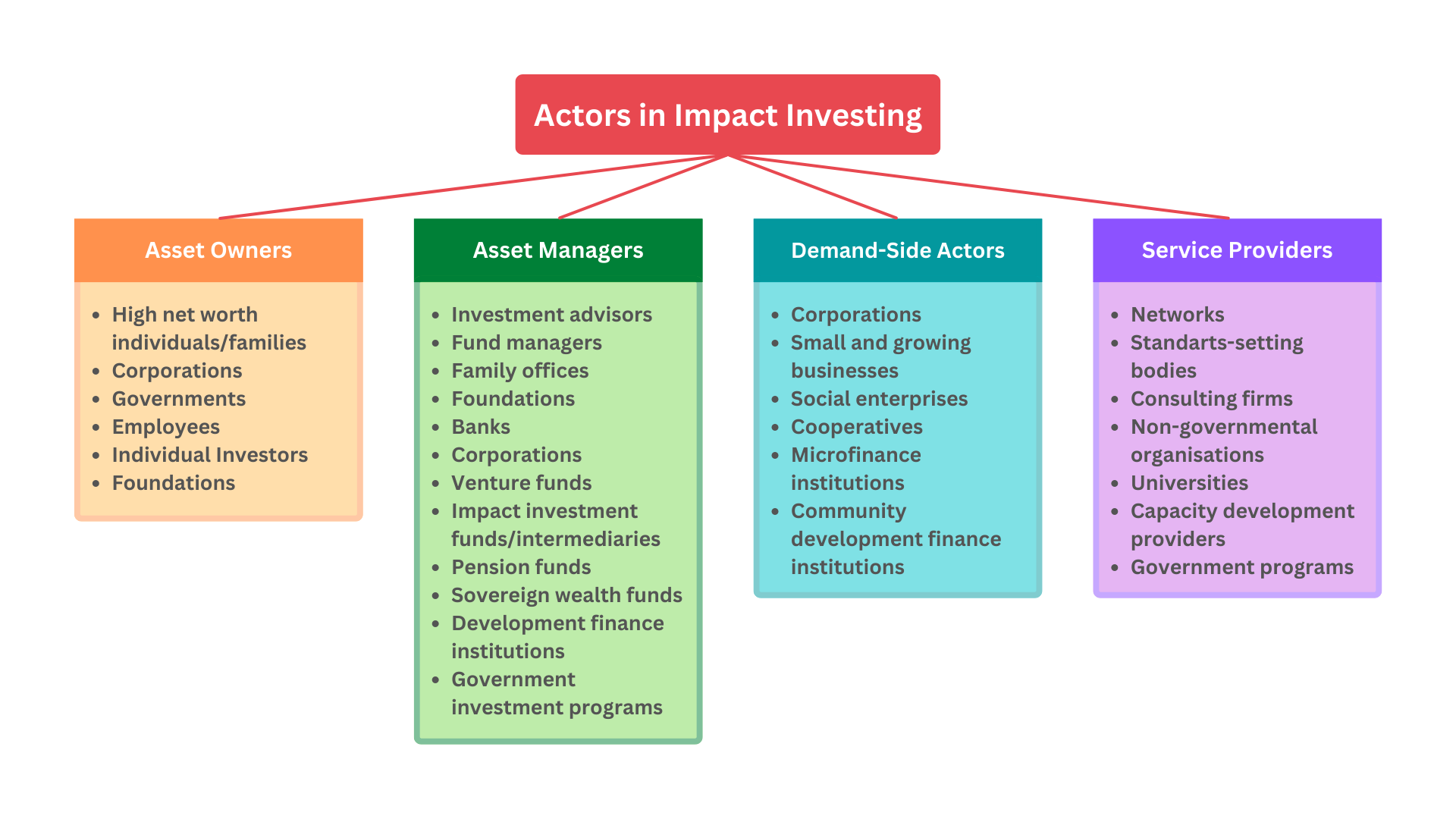Where does the term “impact” come from?
Broadly impact means the economic, social, cultural, environmental and political change that happens due to activities or behaviour of individuals, communities or society.
In finance, the concept of impact refers to the social and/or environmental improvement or enhancement achieved due to an investment. The added value you get on a social or environmental issue while making a financial investment is the “impact”.
What is impact investing?
Impact Investing is investments that create measurable positive social and environmental impact as well as the expected financial return from an investment.
What is the origin of impact investing?
Impact investing was coined for the first time in 2002 in Bellagio, Italy at a meeting hosted by Rockefeller Foundation, to replace the term “social investment” that has been used particularly used in England.
With the Sustainable Development Goals announced by the United Nations in 2015, a paradigm shift took place in the world of investment and the impact investment model began to spread rapidly. Impact investments derive from the United Nations’ 17 Sustainable Development Goals, that are expected to be achieved by 2030, and the following 169 targets.
What is the purpose of impact investing?
If you calculate the social and/or environmental benefit your planned investment will bring about, and include it in your investment budget as well as the profitability calculations, your investment will provide you social and/or environmental added value in addition to financial profit. Impact investing is like a filter you use whilst calculating the investment budget. There is a triple-digit profit on an investment made by targeting impact investing; risk mitigation, profit, and social and/or environmental impact.
Why should we do impact investing?
- The Impact Investing model overthrows the traditional belief that investments can be made only for financial returns whereas social or environmental issues should be resolved by donations alone. Impact investing is not a philanthropic activity.
- The Impact Investing model aims to generate financial income from the investment while seeking the opportunity to invest in social or environmental issues. This way, the investor not only makes financial profit, but also makes an investment in order to solve the social and/or environmental problem that she/he prefers strategically to create a positive impact.
Where and in which areas can the impact investing model be used?
Impact investments are being implemented in both developed and developing countries around the world. They take place in areas that await social and environmental solutions in reference with the Sustainable Development Goals. Sustainable agriculture, renewable energy, energy efficiency, financial inclusion via microfinance, accessible health, and equitable education services are just a few of them.
What are the main features of impact investing?
- Impact investment provides financial return; it is not philanthropy
- Impact investing causes enhancement in social and environmental issues
- Sustainable Development Goals are the guidebook of impact investing
- Next to financial performance, social and/or environmental performance is also measured through impact investing
- They are long-term investments
Who can make impact investments?
- Banks
- Insurance companies
- Individual investors
- Fund managers
- Private-equity companies
- Pension funds
- Foundations
- Public organisations
- Public companies
- Private companies
- Municipalities
- Development agencies
- Non-profit organisations
What makes impact investing stand out from other models?
- The aim of the investment is to contribute to the solution of social and environmental problems
- Targeting financial return between below market price and risk-adjusted market price
- Using various types of assets in investing
- Investor’s commitment to measuring and reporting social or environmental performance
Is philanthropy impact investing?
Philanthropy is not impact investing; it is donating resources to the ones in need in terms of money, goods, and even time. The donor is often motivated by gratitude and a sense of giving back to the community. The reason for donation may also be religious and social motivations such as being responsible to the society. The donor may make a donation, believing that their success in business is due to the opportunities the society provided, and that they should give a share of their achievements. Philanthropy does not aim to make a profit.
Is Corporate Social Responsibility (CSR) impact investing?
CSR is not impact investing; it is about sustainability and integration with society. It has a crucial role in the protection of the environment, human rights, and sense of ethics among the corporate. It also determines the company’s image and reputation and can indirectly affect the company’s financial and economic performance. CSR projects aim not to make direct profit, rather aim to enhance the public image and reputation of the company.

Source for the image: Accelerating Impact, E.T. Jackson and Associates Ltd., 2012
